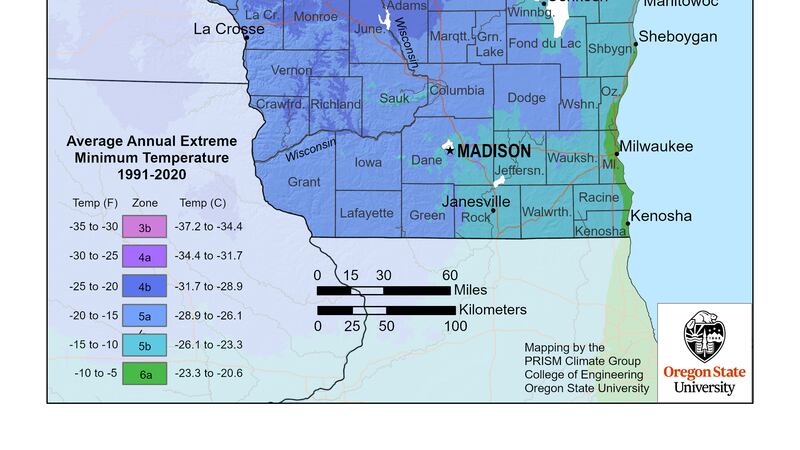Pfizer booster doses now available in Wisconsin

MADISON, Wis. (WSAW) - The CDC now recommends that people aged 65 years and older, residents in long-term care settings, and people aged 50–64 years with underlying medical conditions should receive a booster shot of Pfizer-BioNTech’s COVID-19 Vaccine at least 6 months after completing their Pfizer-BioNTech primary series.
The Wisconsin Department of Health Services confirmed to NewsChannel 7 Monday afternoon the booster doses are now available.
“At this point in time, Pfizer’s third dose is the same as the previous two doses,” says Kent Udulutch, pharmacist.
DHS recommends that the following populations SHOULD receive a booster dose of Pfizer at least 6 months after receiving their second dose of Pfizer in order to further strengthen their immunity:
- People 65 years and older
- All residents in long-term care
- People ages 50–64 years with certain underlying medical conditions(link is external): Cancer Chronic kidney disease Chronic lung diseases, including COPD (chronic obstructive pulmonary disease), asthma (moderate-to-severe), interstitial lung disease, cystic fibrosis, and pulmonary hypertension Dementia or other neurological conditions Diabetes (type 1 or type 2) Down syndrome Heart conditions (such as heart failure, coronary artery disease, cardiomyopathies or hypertension) HIV infection Immunocompromised state (weakened immune system) Liver disease Overweight and obesity Pregnancy Sickle cell disease or thalassemia Smoking, current or former Solid organ or blood stem cell transplant Stroke or cerebrovascular disease, which affects blood flow to the brain Substance use disorders
DHS recommends that the following populations MAY receive a booster dose of Pfizer at least six months after receiving their second dose of Pfizer vaccine, after considering their individual risks and benefits:
- People ages 18–49 years with certain underlying medical conditions.
- People ages 18–64 years who are at increased risk for COVID-19 exposure and transmission because of their job or institutional settings. Occupations at increased risk for COVID-19 exposure and transmission include front line essential workers and health care workers: First responders (health care workers, firefighters, police, staff at congregate care facilities) Education staff (teachers, support staff, childcare workers) Food and agriculture workers Manufacturing workers Corrections workers U.S. Postal Service workers Public transit workers Grocery store workers
DHS said Monday this list could be updated in the future.
At this time, the Pfizer booster authorization only applies to people whose primary series was Pfizer vaccine. People in the recommended groups who got the Moderna or Johnson & Johnson vaccine will likely need a booster shot in the near future. More data on the effectiveness and safety of Moderna and Johnson & Johnson booster shots are expected soon.
Copyright 2021 WSAW. All rights reserved.









